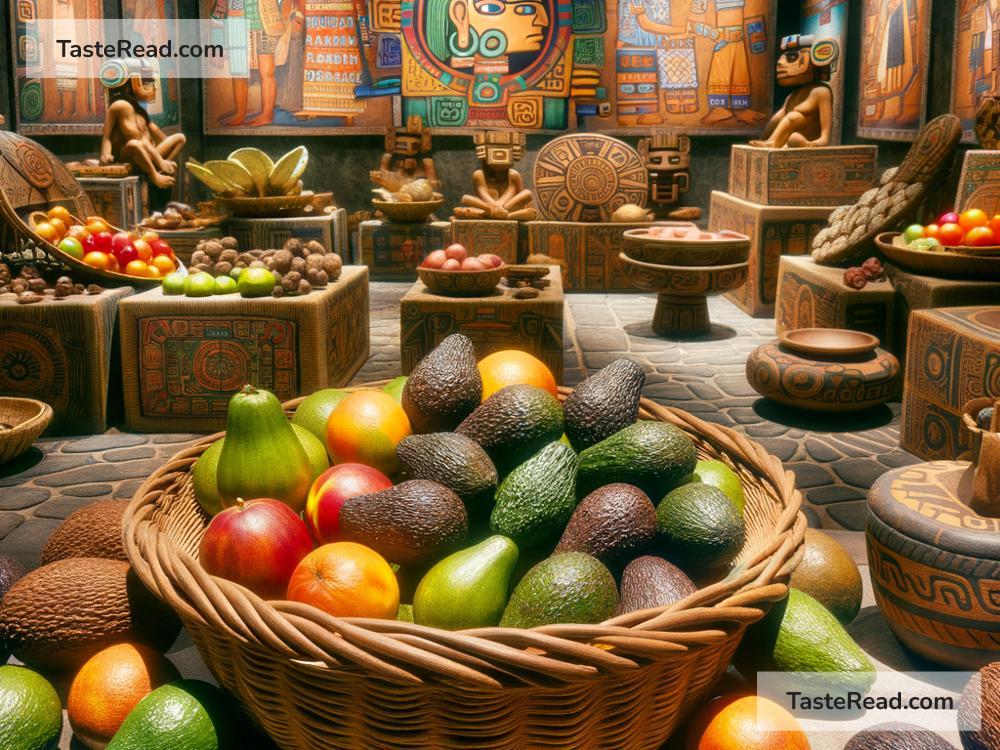The Curious Story of Avocados in Aztec Culture
Avocados are a favorite in kitchens all over the world today, finding their way into dishes like guacamole, salads, toast, and even sushi rolls. But did you know that this creamy green fruit has a fascinating history that goes deep into the heart of ancient Aztec culture? For the Aztecs, avocados weren’t just a food—they were part of their traditions and beliefs. Let’s explore the curious story of avocados in this ancient civilization.
The Origin of Avocados
The avocado, with its buttery texture and rich flavor, comes from the lush lands of Central and South America. Its scientific name is Persea Americana, but the Aztecs knew it as “ahuacatl.” This word had a surprising double meaning in their language, Nahuatl—it meant both “avocado” and “testicle.” It’s said that this association came from the fruit’s shape and the way it hung in pairs on the tree. While this might seem amusing today, the Aztecs didn’t take the name lightly. In fact, it influenced how they viewed avocados in their culture.
A Symbol of Fertility and Love
For the Aztecs, avocados were not just a healthy snack—they symbolized fertility, sexuality, and life itself. Because of their shape and name, avocados became closely linked to ideas of reproduction and love. Aztec tradition even considered them an aphrodisiac, meaning they were believed to spark feelings of romance and passion.
Legend has it that young women were forbidden from harvesting avocados during the season when the fruit ripened, as the Aztecs believed their powerful associations could be overwhelming. Whether or not this rule was strictly followed, it’s clear that avocados held a special place in the Aztec worldview.
A Nutritious Treasure
Apart from their symbolic meaning, avocados were highly valued as a staple food. The fruit is packed with nutrients like healthy fats, vitamins, and minerals, making it an essential part of the Aztec diet. With limited access to animal fats in their economy, avocados provided an important source of energy and nourishment.
The Aztecs, who were skilled farmers, cultivated avocados in the fertile valleys of their empire. They didn’t need modern farming techniques to yield impressive crops—the warm climate and rich soil allowed avocado trees to thrive. Alongside other native foods like maize (corn), beans, and chili peppers, avocados were an integral part of their cuisine.
Avocados in Mythology and Medicine
Aztec mythology also featured avocados, highlighting their importance in their spiritual and cultural practices. One story tells of how the gods gifted avocados to humans as part of their divine plan to sustain life on Earth. This myth elevated avocados to more than just a fruit—they were seen as a gift from the heavens.
In addition to their place in mythology, avocados were considered useful in medicine. The Aztecs believed the fruit had healing properties and could be used to treat various ailments. For example, they would use avocado pulp to soothe skin irritation or help promote hair growth. The seed was also crushed and used for medicinal purposes. Even today, avocados are celebrated for their health benefits—showing that the Aztecs were ahead of their time in understanding the fruit’s value.
Culinary Creativity
Aztec cuisine was vibrant and creative, and avocados were a key ingredient in many of their dishes. While guacamole is famous today, its roots trace back to ancient times. The Aztecs created a version of this popular dip by mashing avocados and mixing them with tomatoes, chilies, and other local ingredients. This dish, originally prepared by the Aztecs, has remained beloved for centuries.
The Aztecs also enjoyed avocados sliced fresh or added to tortillas for a complete meal. Their innovative use of local ingredients made their food flavorful and nourishing, with avocados taking center stage.
The Journey of Avocados to the World
After the Spanish conquest in the 1500s, avocados began their journey out of Mexico and Central America to the rest of the world. Spanish explorers tasted avocados for the first time during their time in the Aztec Empire and were fascinated by the fruit’s unique flavor and texture. They brought avocado seeds back to Europe, starting the spread of this native treasure to new lands.
Over time, avocados traveled far and wide, gaining popularity in regions like California, where ideal growing conditions allowed avocado farming to flourish. Today, the fruit is enjoyed globally—but its roots in Aztec culture remain an important part of its story.
The Legacy of Avocados
The curious story of avocados in Aztec culture reminds us of how food connects us to history, tradition, and nature. These ancient people recognized the beauty and value of avocados, weaving them into their beliefs, stories, and meals. Every time you taste an avocado, you’re enjoying a fruit that has traveled through centuries of cultural significance.
So, the next time you scoop some guacamole or spread avocado on your toast, take a moment to remember its fascinating past. From the Aztec Empire to your table, avocados carry a legacy of nourishment, love, and life that bridges the ancient world with the modern one.


